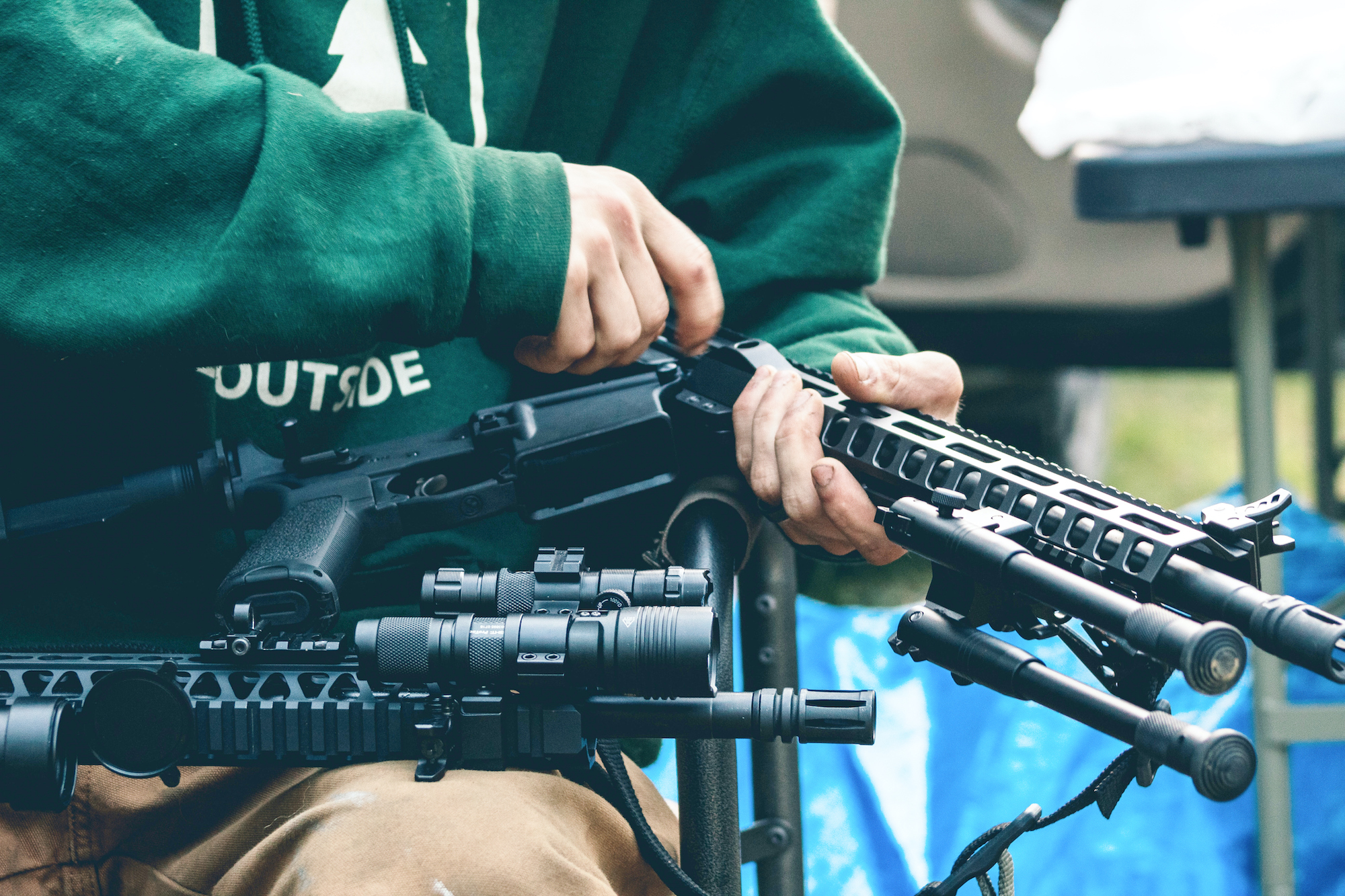We need to prepare for ongoing insurrectionary violence and address its root causes
Following the Jan. 6 insurrectionary attack on the U.S. Capitol and on the country, the FBI has warned of violent actions being planned in all 50 states and D.C. nationwide next week. Last week’s assault, which was incited by Donald Trump, enabled by GOP officials and members of Congress, planned on social media, and buoyed by deeply entrenched white supremacy and Christian nationalism at the heart of our democratic dysfunctionality, were not attacks on any political party or ideology — they were attacks on all of us. The entire country has to be involved in responding to what could become a protracted violent conflict or, quite possibly, an insurgency. Meanwhile, historian Timothy Snyder warned of the need to prevent proto-fascism from becoming full-on fascism.
What happens over the next 10 days will set the tone for what happens over the next 10 months and 10 years. In the immediate term, the national response should focus on ensuring accountability and telling the truth about the election, exploiting divisions between those committed to democracy and those willing to destroy it, and preventing further violence from far-right extremist groups like the Proud Boys and QAnon. Longer term efforts require an honest reckoning with the white supremacist roots of our political malaise, addressing the toxic nature of polarization in this country fueled by social media platforms’ monetization of hate and division, and building and supporting movements capable of transforming our social, political and economic systems.
First, the politicians and officials who incited and enabled the attacks must be held accountable for their actions. Unless there are real consequences to engaging in illegal, dangerous or recklessly anti-democratic behavior, it will be impossible to reckon with our present and deter future attacks. Trump is a clear and present danger to the United States and should be removed from power and prevented from ever running for federal office again. The NAACP is organizing bipartisan support for Trump’s impeachment. Missouri Representative Cori Bush has filed a resolution calling for the expulsion of more than 100 Republican members of the House who voted against certification. Indivisible is mobilizing for the expulsion of members of Congress who supported the insurrection.
There are clear signs that the insurrection is backfiring and GOP enablers are paying a price. We need to learn from and exploit this backfire. Trump’s approval rating has plummeted to 33 percent and he was impeached Monday by the U.S. House for the second time. Major companies have suspended political contributions to members of Congress who voted against certifying the result of the election. A pro-Trump candidate for governor of New Jersey abruptly dropped his campaign. Republican Attorneys General who supported the election lawsuit are facing disciplinary complaints and the Republican Attorneys General association is distancing itself from robocalls urging supporters to go to D.C. to “fight” and overturn the election. Facebook and Twitter banned Trump and took down the accounts of over a thousand far-right groups while Google and Apple shut down Parler, a platform favored by extremists.
Mainstream media outlets should be encouraged to report on these fissures, defections, and divestments and explain their significance in defending democracy. Further economic and social pressure should target the media enablers of violence and violent extremism, which have profited immensely from spreading hatred and conspiracy theories. Prominent Evangelical and Catholic religious leaders, priests, and clergy who spread lies about the election being stolen from Trump should be persuaded and pressured to tell the truth and repent.
Faced with heightened risks of violence in Washington, D.C. and across the country this weekend and next week, it is critical to amplify the work of peacebuilders and invest in de-escalation and violence prevention trainings and capacity-building provided by groups like DC Peace Teams, Cure Violence, Nonviolent Peaceforce, Over Zero, and the TRUST Network. Activist groups have rightly assessed that encouraging people to take to the streets to confront Trump supporters and extremists is the wrong move — both for very serious health reasons and because they know that Trump and the far-right are desperate to make this a clash between opposing groups, rather than a one-sided attack on the country.
Many civic groups are promoting alternative plans for action. Indivisible, The Frontline and #ShutDownDC are planning dispersed nonviolent actions across the country and in the capital to demand impeachment and denounce white supremacy. These include banner drops over highways, car caravans and a #DontrentDC campaign calling on those who rent out apartments in D.C. to refrain from doing so from Jan. 17-20, when white supremacists will be back in town. In a clear victory for activists and a further sign of backfire from the violent insurrection, Airbnb has announced that it is cancelling all D.C. reservations.
Despots and extremist groups alike want people to feel afraid and helpless. They need to know that they will not succeed. In the upcoming week, a tactical option beyond telling people to stay home and avoid street confrontations would be to invite every American across the country — regardless of their race, political affiliation, or zip code — to participate in a synchronized act of national unity and democratic solidarity. The tactic of cacerolazo, or the banging of pots and pans in unison, has been used in places like Chile, Brazil, Turkey and elsewhere to unite people around struggles for freedom and justice. In the United States, it was used during the George Floyd protests and in response to the pandemic, as people in New York City and across the country banged pots and pans from their rooftops, balconies and porches to pay homage to the nurses, doctors and other essential works on the frontlines of the Covid response. It was a powerful and emotionally gripping act of togetherness.
What if, sometime between Jan. 17 and 20 (perhaps on Inauguration Day itself), every American were invited to honk horns and bang pots for a full minute, starting at the same time everywhere across the country? This trans-partisan, pro-democracy and pro-peace national action, if promoted by youth, workers, professional groups, business leaders, media outlets, artists and entertainers, would be a powerful, joyful antidote to the angry far-right shouting and violence. It would send a message that “we the people” will not tolerate violence and are committed to each other, our country and our future together.
Over the longer term, dialogue and direct action, nonviolent resistance and peacebuilding, will both be necessary to address deeply rooted violence and injustices in this country. It is telling that last week’s mob attack occurred right after the remarkable election in Georgia, a state with the second highest number of lynching in the country, that saw a Black pastor and a Jewish son of immigrants win and flip the U.S. Senate. Years of Black women-led organizing and powerful coalition-building in the state made the victory possible. Similarly last summer, following the murder of George Floyd and enabled by years of Black-led organizing, there were thousands of protests and demonstrations calling for an end to police brutality and systemic racism — the broadest and most persistent movement in U.S. history.
The forces that brought Americans together across political, racial, gender, generational and class divides to confront the legacy of slavery and Jim Crow authoritarianism — and to win improbable electoral victories — are those needed to transform the racist and anti-democratic structures and systems in this country. That includes mobilizing around the passage of state and federal legislation, like H.R. 1 and H.R. 4464 that are necessary to protect voting rights, dismantle systemic barriers to participation in the electoral process and chip away at structural minority-rule entrenchment.
At the same time, building broad-based coalitions and movements necessary to transform social and political systems in a deeply divided society is a huge challenge. While conflict, disagreements and issues-related polarization are normal and necessary, toxic polarization — in which the other side is seen as a monolithic enemy and an existential threat — is dangerous and cripples our ability to solve serious problems. Toxic polarization, which some have referred to as political sectarianism, encourages an extreme simplification of reality and the creation of an “us vs. them” framework where “out-party hate [is] more powerful than in-party love.” Making contact with anyone from the other side or making any sort of compromise are seen as a betrayals to your own side. The result is that there are huge incentives to adopting anti-democratic practices and tactics to advance electoral and political goals, ultimately undermining representative democracy.
There is no easy solution to toxic polarization. On the one hand, the rise of far-right extremist groups, backed by a faction of the GOP, is an existential threat to many fellow Americans, notably those who are Black and Brown. Four days after seditionist Sen. Ted Cruz defended Trump’s attempted coup and invoked the Compromise of 1877, which effectively disenfranchised African-Americans and created an apartheid system, Confederate flags paraded through the Capitol. Meanwhile, U.S. intelligence agencies have assessed far-right extremist groups as the greatest domestic terrorism threat.
Still, toxic polarization, which affects every aspect of our social and political lives, makes it difficult to collectively confront the structural sources of political sectarianism — like economic inequity and structural racism — and makes violence more likely.
Scholars and experts have recommended many potential interventions to address political sectarianism, ranging from creating awareness campaigns about partisan misperceptions and highlighting areas of agreement on key policy issues (like immigration reform and gun policy), to encouraging and acknowledging positive experiences with neighbors, friends and family who share opposing political viewpoints. They also suggest engaging with opinion leaders to stop the spread of polarizing narratives and encouraging restorative narratives, pressuring social media companies to end the commodification of hate and outrage, and creating incentives for politicians and other elites to decrease sectarian behaviors.
Support Us
Waging Nonviolence depends on your support. Become a sustaining member today and receive a gift of your choice.
These recommendations highlight the importance of making our analyses and narratives more nuanced, engaging in deep listening, highlighting collaborative problem-solving and civic engagement across partisan divisions, and building powerful coalitions and movements capable of building power and disincentivizing anti-democratic and anti-social policies and practices.
At this time of intersecting crises in the United States, there is a great need for the social justice, democracy and peacebuilding communities in the United States to come together and collaborate based on their comparative strengths. The peacebuilding community’s expertise in analyzing the roots of conflict and building inclusive processes, the social justice community’s ability to raise urgency and shift power, and the democracy community’s laser sharp focus on necessary structural reforms are all needed to move the country along a transformational path. Meanwhile, there are tremendous opportunities to learn from activists, organizers, and peacebuilders around the world who are challenging authoritarianism and building peace with justice in highly-divided societies.
While we face the threat of real violence in the coming days, if we can come together and work to address the roots of our deep divide it is possible to imagine a brighter future.
^^^
This article originally appeared in Waging Nonviolence.
Image by Jay Heike



